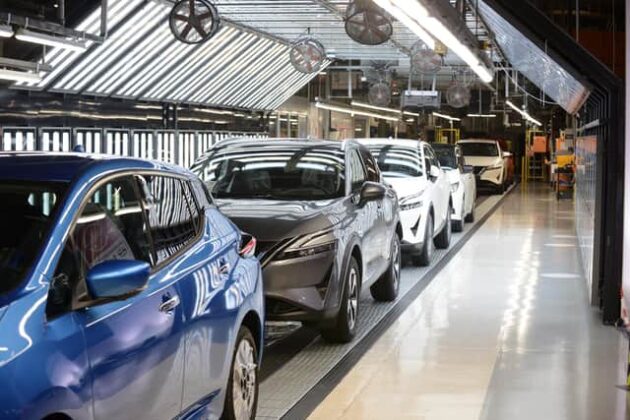Britishvolt’s Collapse, and the Grim Reality of the UK Car Industry
The promise of a brighter future powered by battery technology once captivated our collective imagination, offering a glimpse of cleaner, more sustainable personal transport. The rise and fall of Britishvolt, a symbol of this vision, stands as a stark reminder that the road to a renewable energy revolution is fraught with complexities and challenges that often evade our rosy narratives. As the UK car industry grapples with a dismal year, Britishvolt’s collapse highlights the perilous journey towards sustainable mobility and raises crucial questions about the true costs of our aspirations. In this column, we peel back the layers of illusion to confront the harsh realities of battery technology and its implications for the UK car industry.
The Rise and Fall of Britishvolt
Britishvolt, once heralded as the embodiment of the UK’s commitment to a greener future, has stumbled amidst financial turmoil. Reports that the company collapsed, leaving debts amounting to £120 million, cast a shadow over the ambitious dreams of domestic battery production [^1^]. This setback serves as a sombre testament to the intricate challenges of translating lofty ideals into tangible, sustainable ventures.
The collapse of Britishvolt not only raises questions about the viability of battery manufacturing on British soil but also exposes the fragility of our aspirations in the face of economic realities. It underscores the need for a more nuanced approach that acknowledges the broader implications and inherent risks of placing all our bets on a single technological solution.
A Dismal Year for the UK Car Industry
As Britishvolt grappled with financial turmoil, the broader UK car industry found itself ensnared in a dismal year marked by uncertainty and challenges. The impact of supply chain disruptions, semiconductor shortages, and changing consumer preferences reverberated throughout the industry, resulting in a cascade of setbacks and diminished performance [^2^]. The visions of a thriving electric vehicle market seemed distant as the industry struggled to navigate a treacherous landscape.

Unearthing the Hidden Costs of Battery Technology
The collapse of Britishvolt and the UK car industry’s struggles offer an opportune moment to reflect on the intricate web of challenges entangled with battery technology. While the allure of clean energy and reduced emissions remains undeniably compelling, we must confront the stark reality that our pursuit of a battery-powered utopia is not without its ethical, environmental, and economic costs.
Central to the battery production process are the core raw materials – lithium, cobalt, and nickel – that are extracted from the earth in third-world countries. The mining operations that unearth these elements often come with human rights abuses, hazardous working conditions, and environmental degradation [^3^]. The carbon footprint associated with transporting these materials across continents only amplifies the environmental toll, raising questions about the true sustainability of battery technology.
Challenging the Narrative
The collapse of Britishvolt and the woes of the UK car industry underscore the need for a more balanced and critical assessment of our quest for sustainable personal transport. While battery technology may play a role in reducing emissions, we must resist the allure of an all-encompassing solution that blinds us to the broader implications.
The path to a greener future must extend beyond technological fascination to encompass a holistic approach that addresses ethical sourcing, responsible production, and transparent supply chains. The pursuit of sustainability demands that we confront uncomfortable truths about the human and environmental costs of our choices, while exploring alternative avenues that prioritize the well-being of people and the planet.
Conclusion: An Informed Path Forward
The collapse of Britishvolt and the UK car industry’s struggles serve as potent reminders that our journey towards sustainable personal transport is a complex and multifaceted endeavour. The dream of battery-powered vehicles must be tempered with a sober understanding of the challenges that lie ahead. Rather than succumbing to the seductive allure of a single solution, let us embark on a path of exploration and innovation that embraces the holistic imperatives of ethics, environment, and economics.
The road ahead requires a nuanced and informed approach that navigates the intricacies of battery technology while addressing the hidden costs that the glossy narratives often overlook. Only by confronting these truths can we pave a path towards a truly sustainable and equitable future.
References:
- The Guardian: Britishvolt ‘Collapsed Owing £120m’
- BBC News: UK Car Industry Suffers Worst Year for Two Decades
- The Guardian: Cobalt Children
Views: 46





































